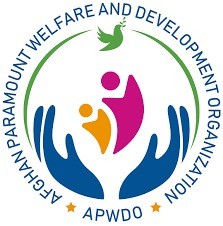Our Partners
At APWDO, we believe that meaningful partnerships are the cornerstone of effective humanitarian and development work. We collaborate with a diverse range of international donors, government bodies, and international organizations to amplify our impact and ensure sustainable outcomes. These partnerships enable us to leverage resources, share knowledge, and coordinate efforts to address the complex challenges facing Afghanistan. Our commitment to collaboration reflects our belief that collective action is essential to creating lasting change and building resilient communities.
Key Donors
APWDO has established strong relationships with several international donors who share our commitment to improving the lives of vulnerable communities in Afghanistan. Our key donors include FCDO, USAID, UNICEF, UNDP, UN-OCHA, UNFPA- UNHCR, IDLO,Save the Children and FAO. These partnerships provide us with the resources and expertise needed to implement high-impact programs across various sectors, including emergency assistance, education, health, women’s empowerment, and peacebuilding. Their support enables us to reach more beneficiaries and expand our reach to underserved regions of Afghanistan.
Stakeholder Engagement
We have formalized our collaboration with the Government of Afghanistan through Memorandums of Understanding (MoUs) with key ministries and agencies. These include the Ministry of Public Health (MoPH), Afghanistan National Disaster Management Authority (ANDMA), and Ministry of Refugee and Repatriation (MORR). These partnerships ensure that our programs are aligned with national priorities and policies, enhancing their relevance and effectiveness. They also provide us with valuable insights into the local context and facilitate coordination with government-led initiatives, ensuring a comprehensive approach to development and humanitarian response.
Memberships & Collaborations
APWDO is actively engaged in various international forums and clusters to ensure coordinated and effective humanitarian action. We are members of several UN clusters, including the Food Security and Agriculture Cluster (FSAC), Emergency Shelter and Non-Food Items (ES-NFI) Cluster, Health Cluster, Education Cluster, Protection Cluster, Gender in Humanitarian action working group ( GiHWG), Disability inclusion working group, Casher and Voucher working group (CVWG), and Water, Sanitation, and Hygiene (WASH) Cluster. Through these collaborations, we work alongside other humanitarian organizations to address critical needs, avoid duplication of efforts, and maximize the impact of our collective work. Our active participation in these clusters demonstrates our commitment to transparency, accountability, and the pursuit of sustainable solutions in line with international standards.

